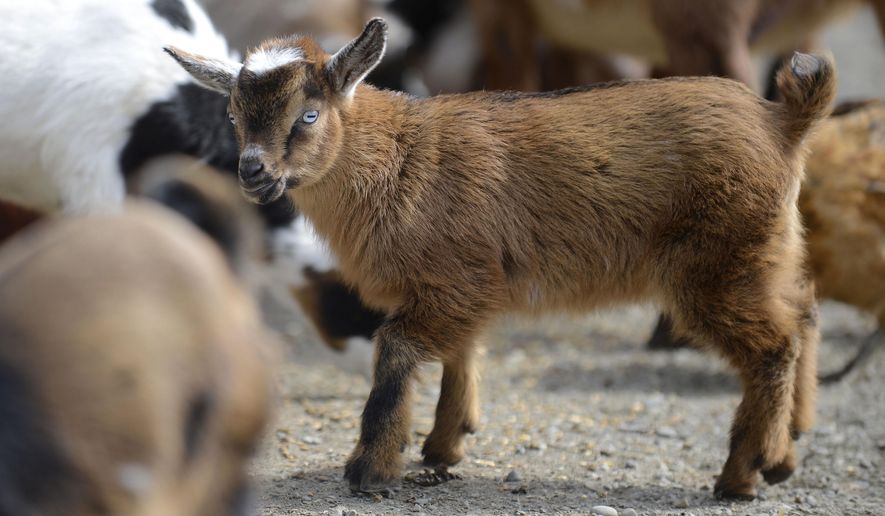OPINION:
Nigeria boasts Africa’s largest population and largest economy, and is also home to one of Africa’s bloodiest conflicts. Violence this year in Nigeria’s Middle Belt region was six times deadlier than the far-flung mayhem created by Boko Haram, the infamous Nigerian Islamist terrorist group.
The complexity of the Middle Belt conflict, its growing religious element and the fast approach of general elections early next year combine to present a pressing danger to Nigeria. And that should concern Washington.
What’s the fighting about? Much of it is herdsmen versus farmers.
Radical elements of herdsmen groups swoop onto villages, razing huts and indiscriminately slaughtering residents in an effort to drive farmers from their lands. Some farming communities have created self-defense militias that have committed atrocities during retaliatory attacks against herding communities. In the first half of this year, these conflicts claimed 1,300-plus lives and displaced 300,000 people.
The herdsman-farmer relationship has long been delicate. In some cases, the communities have enjoyed a mutually beneficial coexistence during the seasonal movement of northern herds to the pastureland and water in the fertile Middle Belt region, which is occupied by farmers.
Yet religious, tribal and lifestyle differences between the groups make the relationship volatile. The herders are primarily nomadic, Muslim and Fulani — a large tribe spread across 21 African countries — while the farmers are settled, primarily Christian and non-Fulani.
Clashes have long been common. But increased competition for resources, poorly conceived legislation meant to mitigate tensions and an influx of weapons from Libya’s looted stockpiles have helped spark a surge in violence.
The religious component is especially worrisome. Fulani raiders frequently target churches and Christian leaders, by one estimate destroying 500 churches since 2011. Some Muslim and Christian groups in Nigeria already describe the conflict as a primarily religious confrontation.
Some Christians ascribe the Muslim-dominated army’s comprehensive failure to provide security to apathy over Christian deaths, or to the fact that the president, Muhammadu Buhari, is a Fulani Muslim. This may well worsen the tensions across the country between Muslims concentrated in the north and Christians concentrated in the south.
The conflict is dangerous for Nigeria and beyond for other reasons as well. Nigerian forces still battle a resurgent Boko Haram and another Islamist terrorist group, Islamic State’s West Africa Province. They can ill afford the Middle Belt violence to spread further. Those groups could use the sectarian element of the Middle Belt conflict to recruit, as a supposed civilizational struggle between Muslims and Christians is a frequent theme of Islamist propaganda.
Furthermore, the Middle Belt region is the breadbasket of Nigeria. As the violence grinds on, more and more farmers are unable to work their fields, adding to the challenge Nigeria already faces as the country with the highest number of extremely impoverished people in the world.
The surge in Middle Belt bloodshed also comes at a particularly delicate time. Nigeria is girding for general elections next year, and past elections at times have been violent and divisive. The grievances driving the Middle Belt turbulence are some of the same that poison national politics. Until addressed, they will continue to inflame the volatile atmosphere around next year’s polls and lessen the chance that the election can further the progress of the last presidential vote with a rare peaceful transfer of power.
What happens in Nigeria doesn’t stay in Nigeria. If the Middle Belt violence deepens and spreads, then it could lead to significant displacement that would strain the region and add to the immigration flows with which Europe is struggling to manage. Moreover, it threatens to buttress regional terrorist groups and exacerbate similar conflicts involving Fulani in nearby countries.
All of this should be ringing alarm bells in Washington.
⦁ Joshua Meservey is a senior policy analyst specializing in African and Middle Eastern affairs at The Heritage Foundation’s Allison Center for Foreign Policy. Austin Avery is a former member of The Heritage Foundation’s Young Leaders Program.




Please read our comment policy before commenting.